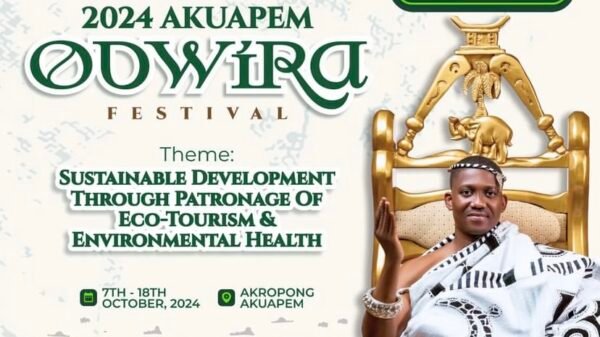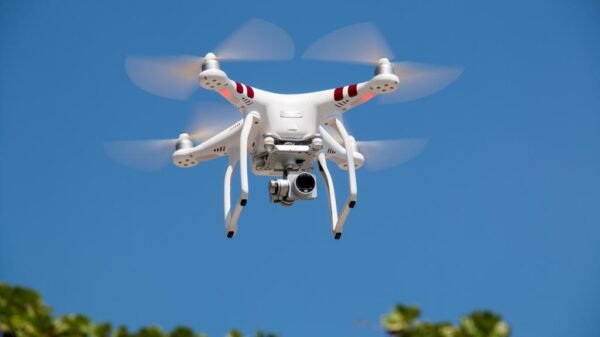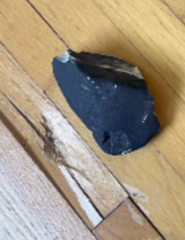It is a holiday in Ghana and tourism enthusiasts are embarking on an excursion to one of Ghana’s rich forest heritages, the Atewa Range Forest Reserve in the Eastern Region.
This forest is described as having great wealth because of its distinct features. It boasts significant diversity, with at least 1,100 plant species and butterflies not seen on any site in West Africa.
Ghana’s tourism sector contributes immensely to its GDP and creates thousands of job opportunities for the youth.
Interestingly, natural forest conservation is from the northern to the southern part of Ghana, and it contributes to the country’s efforts to achieve the Sustainable Development Goals (SDGs) 1 and 8, which aim to reduce poverty, promote decent work and economic growth.
However, Ghana’s ecotourism sector and local livelihoods were hard hit by the COVID-19 pandemic.
Businesses came to a standstill and services were suspended. Protected areas and mass tourism facilities were badly affected.
For example, tourism locations such as the Kakum National Park, Mole National Park, Ankasa Conversation Area and Bobiri Butterfly Sanctuary where thousands of tourists visit annually came to a halt for more than six months, leading to joblessness and redundancies.
Recounting the negative impacts of COVID-19 on ecotourism, the Deputy National Director of an environmental non-governmental organisation, A Rocha Ghana, Mr Darly Bosu, confirmed that some employees were sent home as a result of the pandemic.
“During the pandemic, recovery centres in Ghana came to a halt, which meant that all the revenue that was supposed to be generated by these protected areas and ploughed back into operations dried up. Again, the people who were employed in the tourism sector, the majority of whom were women, were laid off.
“The sad thing was that stimulus packages given to businesses to absorb some of the shocks of the pandemic and help them recover did not consider the tourism sector at a time when such stimulus was badly needed. The little that came the way of tourism came way after the peak of the pandemic. So we were home with no support mechanism, and that also affected environmental protection,” he said.
Mr Bosu revealed that illegal activities surged in unprotected areas due to the absence of forest guards who were asked to stay home for fear that they would spread the virus.
“We saw illegal mining, also locally known as ‘galamsey’, increase within a short period in the forest reserve. Logging activity soared in the northern part of Ghana, depleting the fragile savannah ecosystems because the officers who were supposed to be at post were asked to stay home,” he said.
According to research conducted by a conservation expert, Dr Anna Spenceley, on COVID-19 and protected area tourism: a spotlight on impacts and options in Africa, nearly 14,000 local employees working for tourism operators would be adversely and directly affected, as well as their dependents, if the crisis continued.
The study also confirmed a surge in environmental crimes at unprotected tourist spots. Environmental crime is one of the immediate concerns of most operators (78 per cent), and a majority predict that levels will increase due to the pandemic (86 per cent).
Despite efforts made by authorities to clamp down on illegal mining, Ghana continues to battle the unlawful activities that are adversely affecting the environment, agriculture, climate change and endangering the existence of wildlife.
The African Green Stimulus Programme suggests that to revitalise eco-tourism and biodiversity, stakeholders must mobile resources to support the recovery of the sector through additional conversation finance, including sustainable revenue diversification such as Conversation Trust Funds, Debt for Nature or Climate Swaps.
Also, the United Nations Environment Programme’s (UNEP’s) ecotourism: principles, practices and policies for sustainability clearly outline adequate budgets to conserve popular tourist areas.
The NGO has, therefore, urged policymakers and stakeholders to invest in post-COVID-19 recovery interventions and readily commit to invigorating the ecosystem by increasing stimulus packages to protect employees, especially women and communities within Ghana’s eco-tourism value chain.
Source: Afia Agyapomaa Ofosu / prissyof@yahoo.com via graphic.com.gh
























